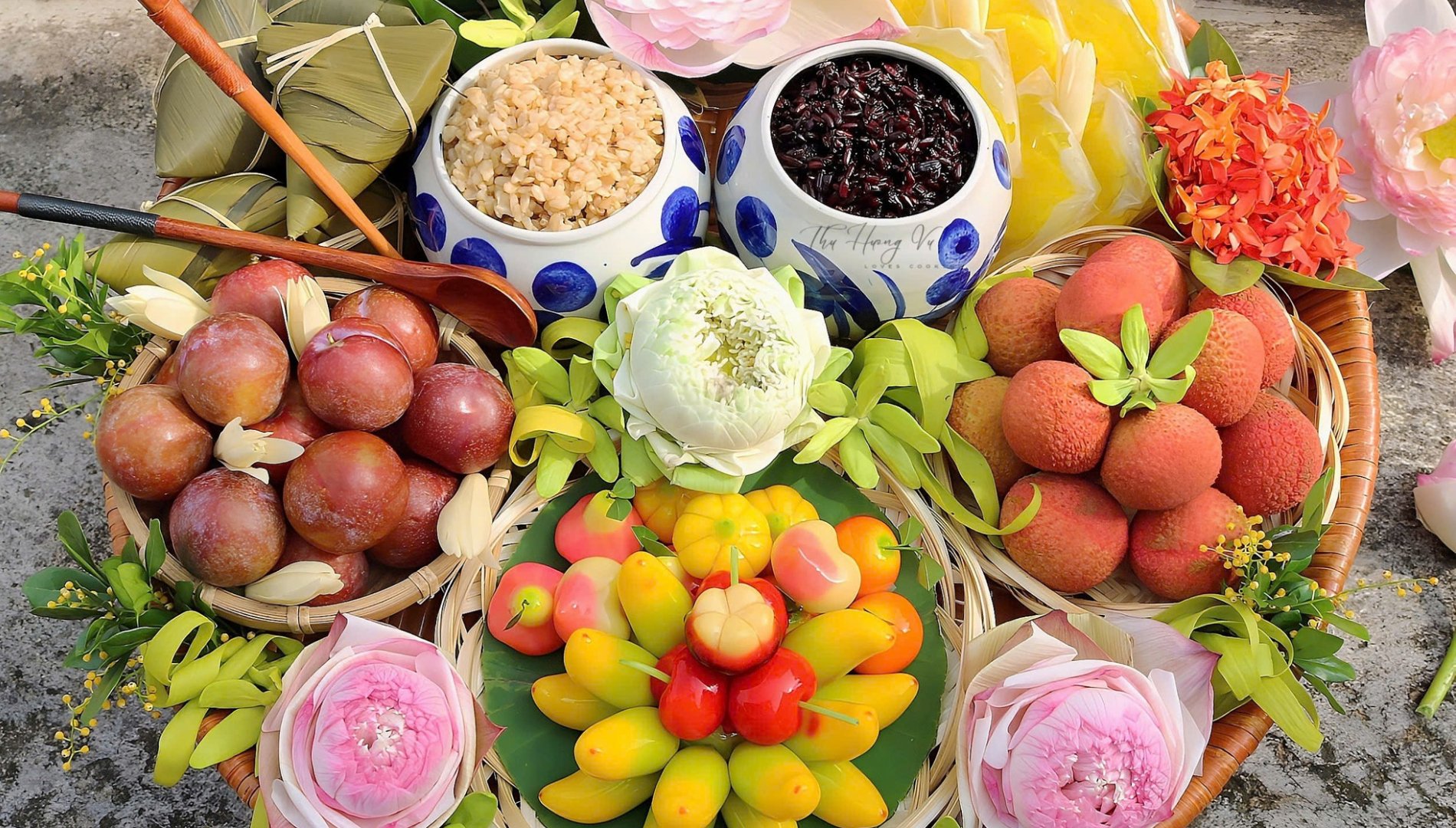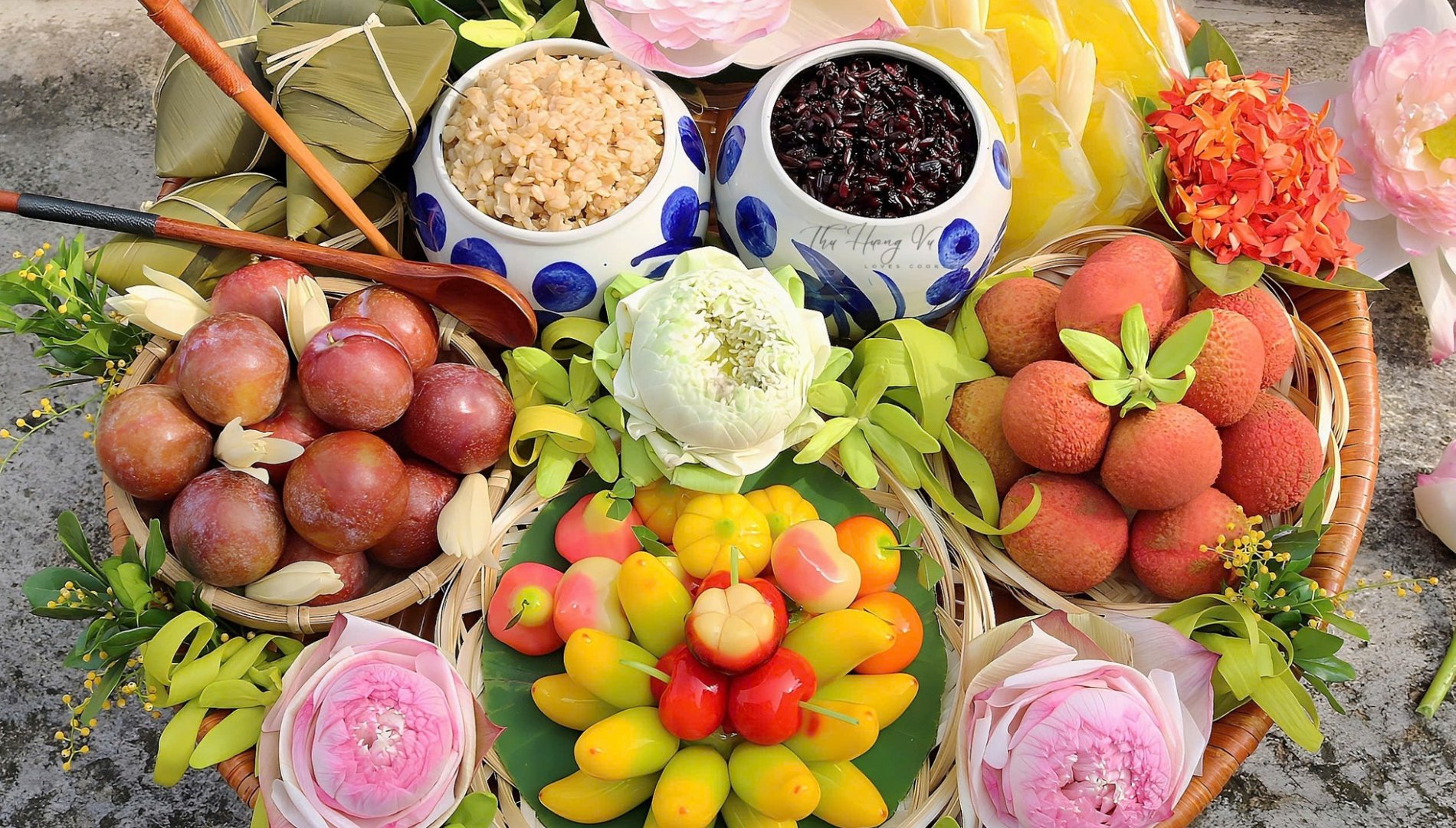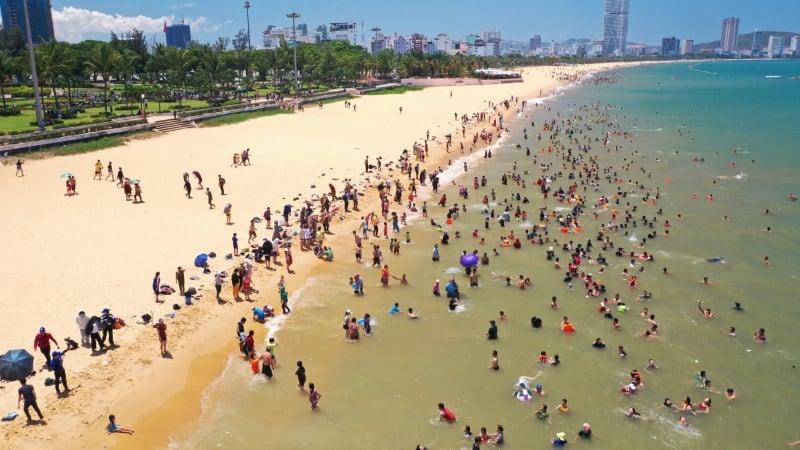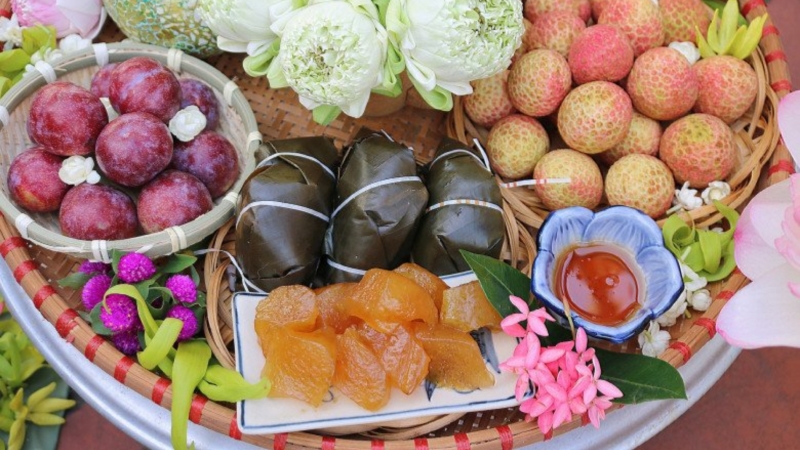"In April, we measure out beans to make sweet soup."
"Celebrating the Dragon Boat Festival means returning in May."
The Dragon Boat Festival in 2025 falls on Saturday, May 31st, and is one of the most important traditional holidays in Vietnamese culture. The Dragon Boat Festival originates from Eastern culture and has been adapted and preserved by the Vietnamese people through many generations. "Doan" means beginning, and "Ngo" refers to the time frame from 11 am to 1 pm – the hour of the Horse.
According to folk beliefs, this is the time of year when the Sun and Earth are closest to each other, bringing abundant positive energy, making it ideal for performing purification rituals and praying for good fortune. The centerpiece of this festival is the offering to the ancestors, an expression of reverence and a wish for health, luck, and prosperity for the whole family.
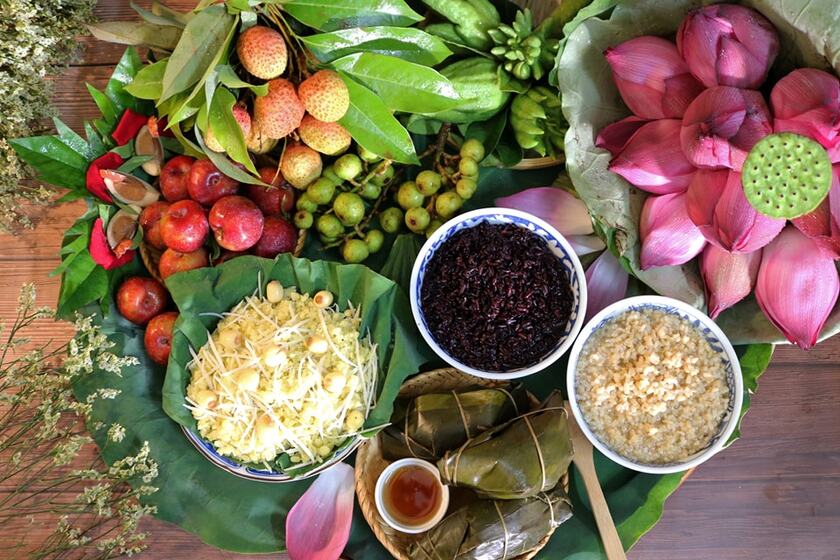
Every May, the atmosphere becomes lively and brimming with the colors of folk culture.
Preparing the ancestral offering tray for the Dragon Boat Festival requires meticulousness and thoughtfulness, expressing gratitude to ancestors for blessing a prosperous year. Essential offerings include incense, flowers, votive paper money, water, and glutinous rice wine.
In particular, fresh, seasonal fruits are an important part of the offering, commonly including plums, sapodillas, watermelons, lychees, and bananas. If possible, families can add rice cakes (also called ash cakes) and lotus seed sweet soup to make the offering more complete and meaningful. Each type of fruit and cake carries its own meaning, symbolizing fertility, a bountiful harvest, and a fulfilling life.
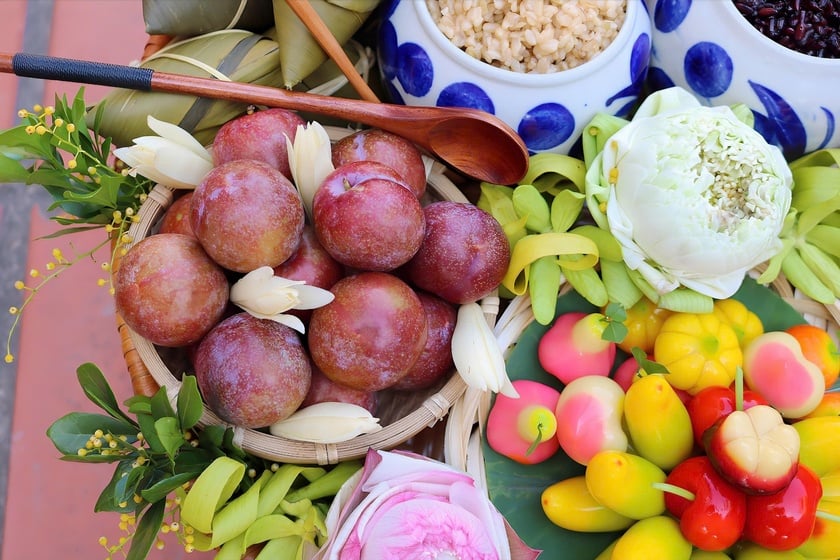
One of the most notable aspects of the Dragon Boat Festival is the consumption of sour, fragrant fruits, believed to "exterminate" parasites from the body.
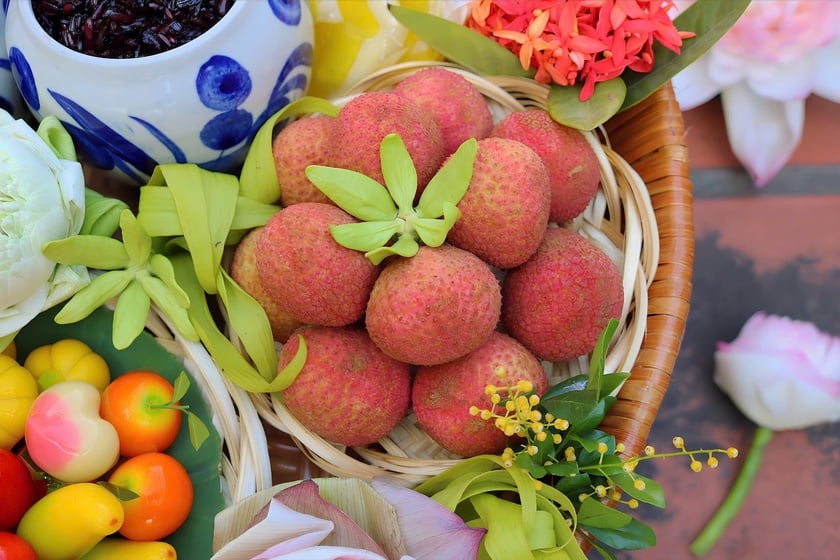
Fermented glutinous rice is the most characteristic dish of the Dragon Boat Festival, symbolizing the extermination of parasites and warming the stomach during the transitional season. People in the North usually use fermented glutinous rice made from the "golden flower" variety, or white glutinous rice with whole grains, while in the South, they use fermented rice balls soaked in glutinous rice wine.

According to ancient beliefs, fermented rice is a dish that combines spicy, hot, sweet, sour, and bitter flavors to kill insects, worms, and parasites in the body.
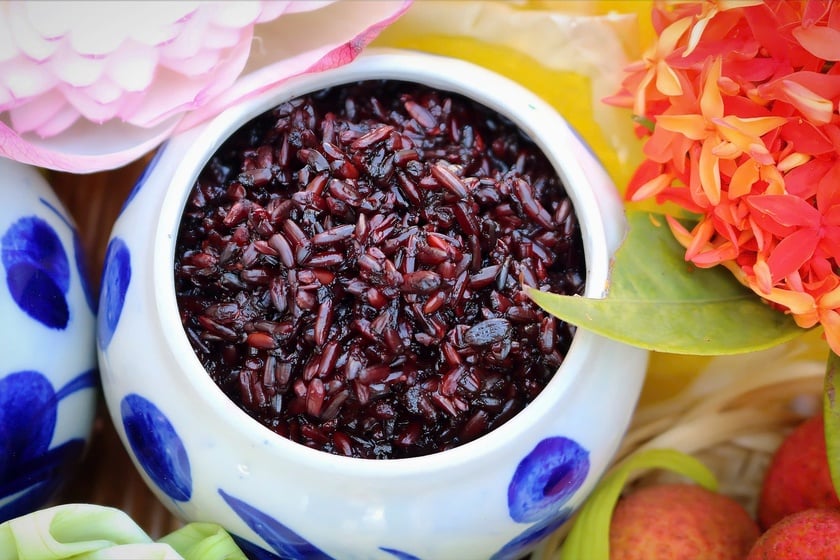
Bánh tro (or bánh gio) is a long-standing traditional cake enjoyed during this time. It's made from glutinous rice soaked in ash water from harmless plants like rice straw, mung bean husks, and pomelo peel. After soaking, the rice turns a light yellowish-white color and becomes soft and chewy. Bánh tro is eaten with molasses or brown sugar, which helps cool the body, soothe the intestines, and improve digestion, making it ideal for summer. Depending on the family, offering 3-5 bánh tro is usually sufficient.
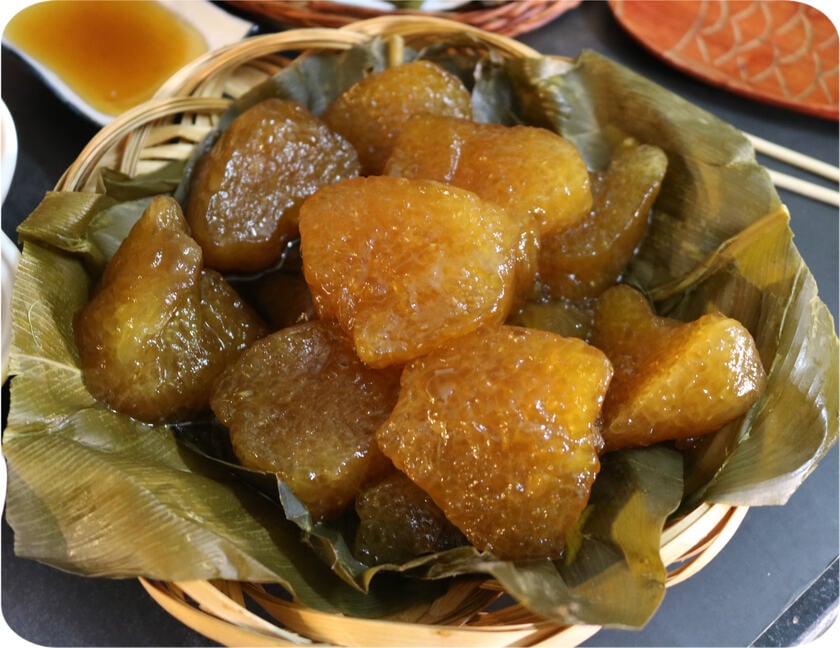
Rice cake has a light, refreshing taste, blended with molasses to create a dish that is both cool on hot summer days and rich in the flavors of the countryside.
Depending on regional traditions, many families prepare a savory offering with boiled chicken, boiled eggs, or boiled duck. In some areas, such as Central Vietnam and the Southwestern region, duck meat is a familiar dish during the Dragon Boat Festival, as ducks are usually fat and have delicious meat at this time. If duck is unavailable, a whole boiled chicken, chopped into pieces, or roasted is also a suitable option, especially in Northern Vietnamese families.
Traditionally, the main ancestral worship ceremony takes place at noon, approximately between 11 am and 1 pm. This is considered the time when positive energy is at its peak, making it ideal for offering gifts to ancestors and deities, praying for blessings to ward off pests and diseases, and to bring peace and prosperity to the family.
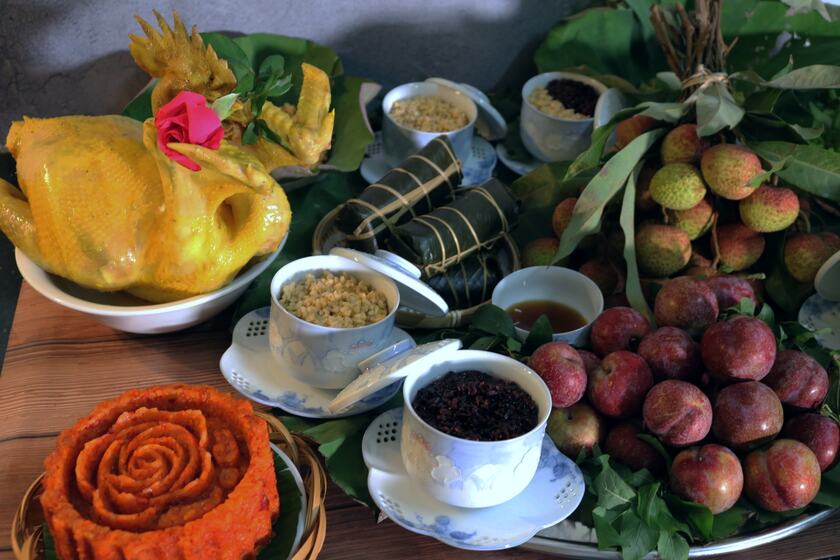
The offering tray for the Dragon Boat Festival is usually simple yet harmonious, mainly consisting of seasonal fruits and traditional cakes and pastries.
Besides the offerings, the Dragon Boat Festival is also associated with many other unique customs aimed at purification and praying for peace. On the morning of the Dragon Boat Festival, after waking up, adults and children often eat certain sour or astringent fruits or dishes such as fermented sticky rice and ash cakes.
Additionally, bathing with natural herbal water is also a popular ritual. Water boiled from coriander, perilla, mint, lemongrass, and bamboo leaves is believed to ward off evil spirits, cleanse the body, and bring a feeling of relaxation and invigoration.
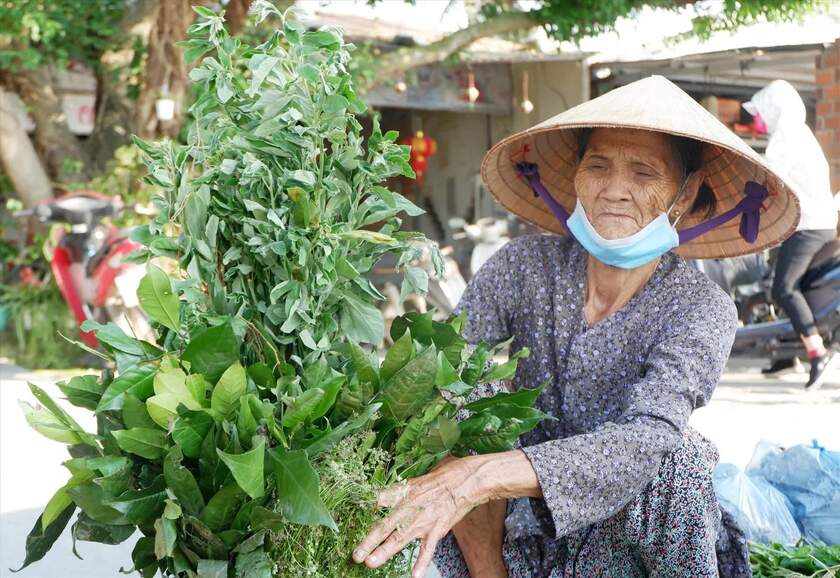
Bathing in "Fifth Day of the Lunar New Year leaves" is an indispensable part of this occasion.
Washing hair and steaming with fragrant leaves such as pomelo, coriander, lemongrass, and soapberry is also a traditional method that helps the body detoxify, prevent colds, and give women shiny, black hair. These activities not only have health benefits but also demonstrate harmony with nature and a desire to attract positive energy into the living space.
The Dragon Boat Festival is an occasion for us to perform meaningful rituals, connect with tradition, and express gratitude. Preparing a thoughtful offering along with other purification rituals will help the family celebrate the Dragon Boat Festival fully, praying for good fortune, health, and wealth.

 VI
VI EN
EN



